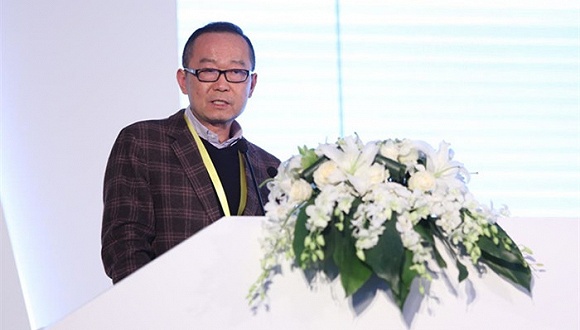During the period of next five years, which has also been called as the 13th Five Year Plan, urbanization would be the matter of prime importance in China and over 16 million urban household registrations would be offered to the peasant-workers each year, which means that the urbanization would play an important role in the process of the substantial adjustment of the economy, according to Zhang Jun, Dean of the School of Economics of Fudan University and Director of China Center for Economic Research.

Zhang Jun Presents at Sina News—Press Conference of Upgrading China's Strategic Project
Zhang Jun said that among the strong policies of destocking and deleveraging, which was formulated in the Central Economic Work Conference closing on 21st December, the most important concept is to digest the oversupplied houses by promoting the census register urbanization; thus to increase the demand for the houses. Besides, the participants of the Conference also came up with the proposal that allows the institutional investors to invest in the real estates, so as to further develop the rental-market.
The prime reason for the Central Economic Work Conference emphasizing on the urbanization is that the pace of the urbanization during the process of China's industrialization is quite slow, especially the urbanization of the census register.
"The urbanization rate of the census register in China is less than 40%, which is extremely low. While the proposal of increasing the rate in the Conference allows more than 16 million peasant-workers have the chance to get urban household registrations therefore to increase the demand among the real estate market,' Zhang Jun said.
The urbanization rate is expected to increase by 1.3% each year to achieve the final goal of 45% five years later. Among the 750 million population lived in the urban areas, there has only been 500 million have the urban household registration, for which 250 million are still waiting. Besides, the population of the peasant-workers has increased in the rate of 10 million per year.
According to Zhang Jun, the problems of Debt Overhang and economic structure are extremely serious since 2008. Although the supply front has improved quite a lot, it has also been restricted too much; therefore instead of inflation, the general level of market prices in China has decreased in the last two years. Since the demand front went wrong, the economic conditions could be defined as deflation.
"The reform of supply front we are emphasizing now means that we should further propel the adjustment of economic structure, including the measures of closing down the plants, suspending operation, merge with others and rationalizing. The enterprises of those who carry heavy debt, in the state of insolvency or out of the policies would be sifted out next year,' Zhang Jun said, the reform of supply front would not speed up China's economic growth immediately, on the contrary, it may even temporarily slow down the economic growth along with the further reform.
However, the slowdown is not all for the bad, according to Zhang Jun, who emphasized the importance of stabilizing the demand while reforming the supply front, especially the demand among the investing area.
In terms of the monetary policy, although one of its aims is to force zombie companies to exit market through adjustment, it doesn't signify the tight monetary policy; more importantly, the policy is aimed to keep the vibrant enterprises alive though the moderately easy monetary policy.
"The situation is that nowadays even the good business is hard to keep its operation. With various tools of monetary policy, we are able to get to a higher level of regulate and control, which may impose restrictions on zombie companies in a certain extent.'
Zhang Jun believes that the most important factor for China's economic growth in future is the human resource and only the human-resource-driven industries possess the possibilities to achieve higher market share. Therefore, the most important factor of the so-called Upgrading China is to upgrade the material-capital-driven industries to the human-resource-driven industries. The material-capital-driven industries, refers to the industries driven by the innovation and created and designed by the investors and market rather than the government, would appeal the majority of the market sources.
*This article is a translated and re-edited version by CCM. The original article comes from www.cnchemicals.com/.
If you would like to know more about what's happening in China, please keep following us on CCM Perspective. We will keep you updated about China.